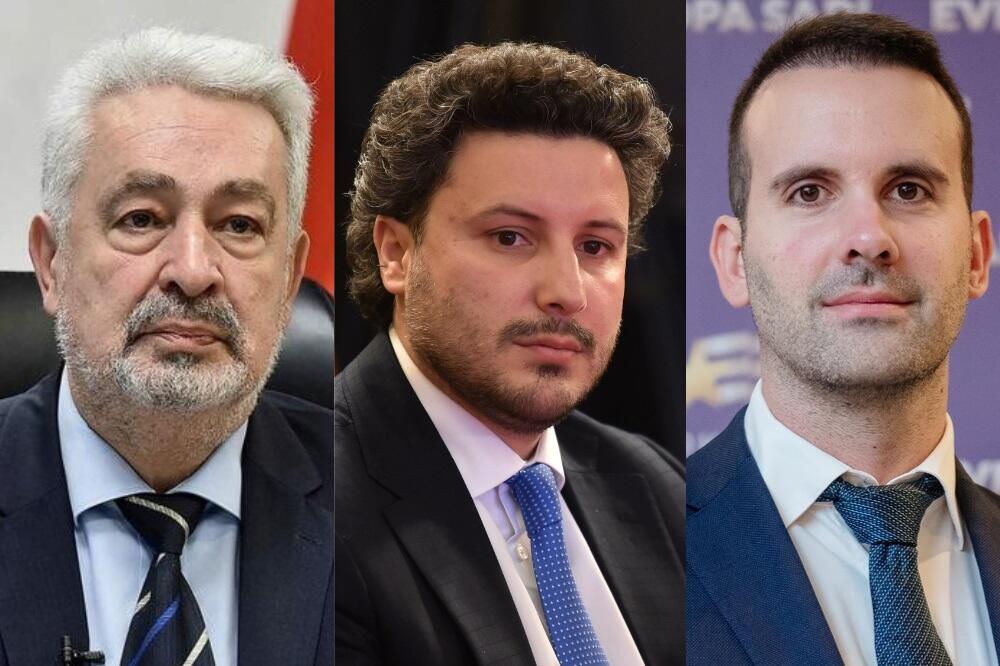Something is not right with us this August since the XNUMXth August victory.
First Government it fell after fourteen months, the second was overthrown after only a hundred days, and the third is losing confidence before it was elected.
When something starts upside down, it cannot end differently than upside down, that is, it never ends, but continues upside down - I used this quote before the formation of Zdravko Krivokapić's Government because it seemed the most appropriate to me at the time.
And it was, the prime minister invoked apostolic symbolism in vain.
Not even God could help him to move the stumbling state of the black hills forward at least a little, although he convinced us all the time that the power of faith can move even mountains.
Fortunately, the mountains did not move, but the power of faith, unfortunately, moved Montenegro backwards.
It was not possible to explain to a man that it was not belief in something or someone that led humanity to progress, but doubting, questioning, researching and questioning everything and everyone.
And that fall, it was supposed to start with a review of the past, but not from the beginning of the Middle Ages, but from the end of the twentieth century.
And break with the practices of the former regime, from party dictatorship to communal infrastructure.
If something should have been taken from the DPS, then it was the unwritten rule that governments are not formed through the media.
- What frivolous party leaders allow themselves is not befitting a serious statesman. The incumbent contributed the most to the collapse of his own rating from the first post-election weeks and the accelerated strengthening of distrust in the Government before it was elected. Instead of clashing with party leaders, let it last as long as it lasts, he chose the media - I wrote it down then.
* * *
And I wouldn't change anything there even now, even though almost three years have passed. I would only add that Milojko Spajić mastered his first political lessons from Montenegrin practice under the mentorship of Zdravko Krivokapić.
It may be that this upside-down, obvious teaching is the cause of repeating some of the mentor's mistakes, but one thing is certain. Of Krivokapić's (pro)estimation that Spajić is "a combination of Montenegrin genetics, Japanese school and Jewish logic", for now, only the first part causes reasonable doubt that it is correct.
That Montenegrin genetics could cause political inconsistency and frequent changes in personal attitudes. The Japanese school and Jewish logic have not yet been registered by the public.
The chaotic formation of the first and third governments was helped by the political inexperience of their mandate holders. Especially during the frequent collisions with the excessively experienced leaders with whom they tried to form the executive power.
But that's only part of the reason why in 2020 serious business turned into a joke. With the tendency for a repeat to be arranged in 2023...
In the meantime, it turned out that it's not all about the personal profile of post-August Prime Ministers, no matter how many times they change them. Because the collective profile of Montenegrin society has remained unchanged.
That the perfecting of the autocracy took thirty years was only possible through the planned development of mass ignorance, primitivism and poverty.
At the same time, everything good that should have been taken over from the pre-war system was systematically destroyed: education, culture and, above all, socially acceptable behavior.
That's why after the fall of the DPS regime, the most important thing was missing - that both the winners and their voters be worthy of the freedom won in the elections.
They were not, and in the majority, neither one nor the other. Because freedom, above all, implies responsibility towards others, both individually and collectively.
Whatever today's generations think about socialism, however little they know about the advantages of its South Slavic variant compared to the Eastern one, one thing is certain - in order to move forward, Montenegro must first go back to 1988.
And make a good effort to, to begin with, revive part of the social values on which the pre-war generations were raised. Especially because the former regime supported only "values" that were useful for it to stay in power.
And in a society that has been morally, politically and economically destroyed for so long, even leaders much wiser than the ones we have at our disposal would not know where to start...
* * *
Second Government it was different in terms of its formation, composition, support and term, but the most important difference compared to the previous one was precisely the selection of the priority goal.
Dritan Abazović decided that it would be a showdown with corruption and crime. Unfortunately, the rest of the winning coalition - apart from some smaller parties - did not support him.
That this primary goal will be the main reason for overthrowing his government was clear after it was elected with the support of DPS.
- Montenegro tried several times the coalition government of horns in a bag and had a bad time. Now the SNP will not be with the SD and the SDP, the SD will not be with the SNP, the SDP would rather be with no one, and we can only hope for something from the DPS in ten years. Therefore, my dear Catullus, what you see perishing, consider it perished. Better tonight than in the fall - I benevolently took a look at my friend's prime ministerial future a month before the election.
Thanks to the TV broadcast of the first session of the Government, it was clear that the DPS was going to knock him down at the first bend.
* * *
A hundred days later, he did.
Because of the fundamental contract with SPC? No matter what, DPS knew even before he supported the candidate that he would be signed.
However, he did not expect that a fundamental contract with the Montenegrin public - the law on confiscation of property acquired through corruption and crime - would be written at the same time.
That is why the DPS overthrew the Government again and again, so that the law would not be adopted in the parliament while there was still a more or less reliable majority.
At the last minute, DF gave up participating in that manipulation. Democrats are not, although their motives have nothing to do with DPS.
How lucky that the great winning coalition at least then uniquely supported the minority government, but I wouldn't open the newly healed wounds now...
Despite the fact that on the eve of last year's Transformation it was obvious that the ousted Government would have to rule much longer than in the full mandate, it still fell with the support of only a dozen deputies.
After that, attacks on the Government turned into a hunt for the Prime Minister. In which at the same time, quite by chance, numerous political analysts, civil activists and militant journalists joined.
In vain, Dritan Abazović will be remembered for the return of the state to legal channels and the war against the mafia. That is why the endemic animosity towards him was all the more fierce as the fight against the endemic plague was more successful.
The European Union commissioners explained long ago why corruption was endemic.
And why was the animosity towards Dritan Abazović endemic?
Well, because the European, and for God's sake, the world's political public does not remember that there was ever anywhere such a living force harnessed to remove the dismissed Prime Minister...
But that part of the story about the relationship between political, civil and media activists is more for psychological than for political analysis.
* * *
Third Government faced the loss of trust even before she was elected.
To the greatest extent, thanks to the mandate of Milojko Spajić, who started the gathering of supporters by taking away those who will not be with him.
Refusal of coalition cooperation with DPS was logical, that party still has years of work on itself in the opposition status.
There is no logical political explanation for the war with Ur and negotiations with DF through the media. He has no right to a personal representative.
After renouncing the support of possible post-election coalition partners, Spajić managed to remain without the support of some safe ones, with whom he formed a coalition before the election.
Alternative Montenegro canceled its support for the government whose key constituent would be the Bosniak party and in which there would be no NSD and DNP.
For similar reasons, United Montenegro does not want to be part of the majority of 44 deputies either.
What's worse, not even two PES deputies supported the proposal of the PES representative, and one deputy resigned "for personal reasons"...
The support of the President of the State and Deputy President of the Movement, Jakov Milatović, who also gave the mandate to Milojko Spajić, became questionable.
Less than half of the consensus announced before the election remained.
For now...
PS And what the European Union's support for the countries of the Western Balkans looks like was perfectly explained by Edi Rama: "Who needs to attack whom in order to get membership faster than Ukraine? Bulgaria could easily attack North Macedonia. Croatia could easily attack Serbia, Serbia could easily to attack Kosovo, and Bosnia and Herzegovina could easily attack itself. Greece would surely be happy to do Albania a favor and attack it, if Albania asked it to. Montenegro could play dead on the beach. And so we would all be ready to get on the train with Ukraine".
Bonus video:





